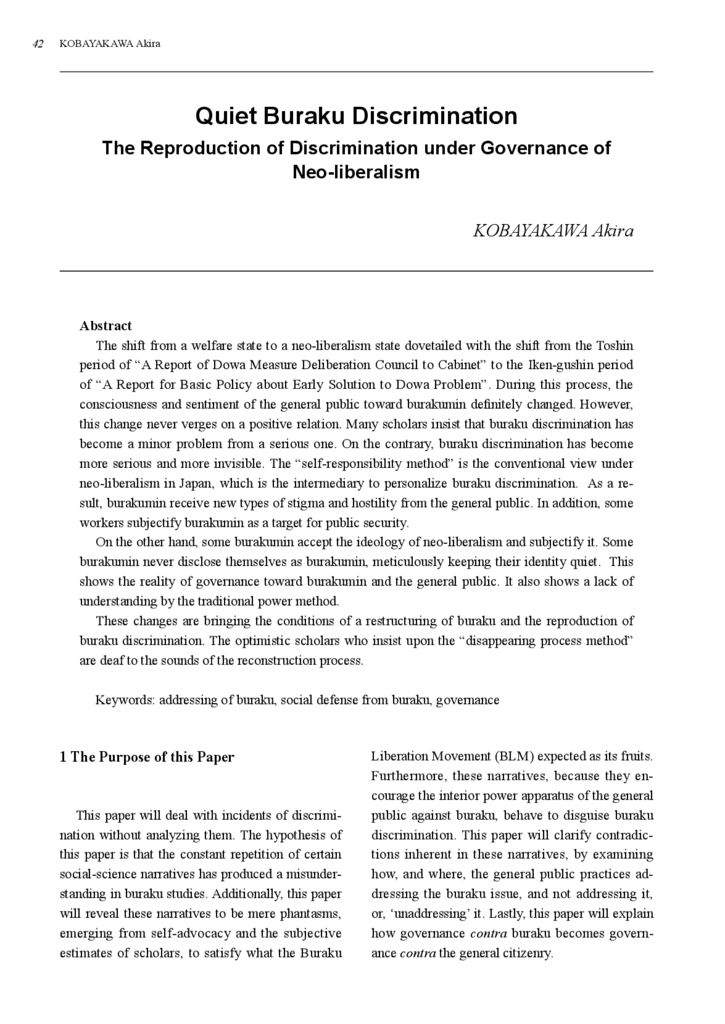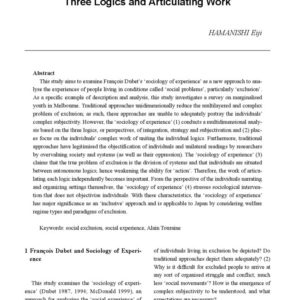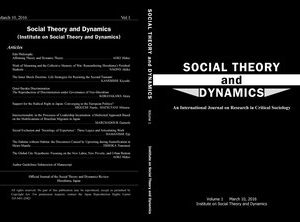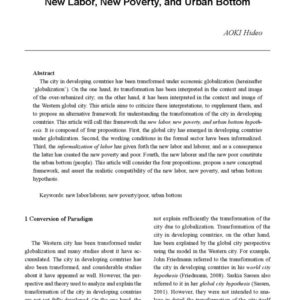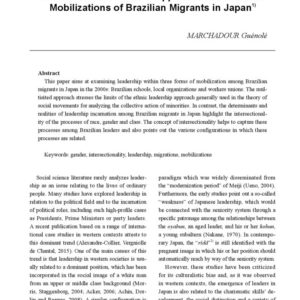Description
The shift from a welfare state to a neo-liberalism state dovetailed with the shift from the Toshin period of “A Report of Dowa Measure Deliberation Council to Cabinet” to the Iken-gushin period
of “A Report for Basic Policy about Early Solution to Dowa Problem”.
During this process, the consciousness and sentiment of the general public toward burakumin definitely changed.
However, this change never verges on a positive relation.
Many scholars insist that buraku discrimination has become a minor problem from a serious one.
On the contrary, buraku discrimination has become more serious and more invisible.
The “self-responsibility method” is the conventional view under neo-liberalism in Japan, which is the intermediary to personalize buraku discrimination. As a result, burakumin receive new types of stigma and hostility from the general public.
In addition, some workers subjectify burakumin as a target for public security.
On the other hand, some burakumin accept the ideology of neo-liberalism and subjectify it.
Some burakumin never disclose themselves as burakumin, meticulously keeping their identity quiet.
This shows the reality of governance toward burakumin and the general public. It also shows a lack of understanding by the traditional power method.
These changes are bringing the conditions of a restructuring of buraku and the reproduction of buraku discrimination.
The optimistic scholars who insist upon the “disappearing process method”are deaf to the sounds of the reconstruction process.

